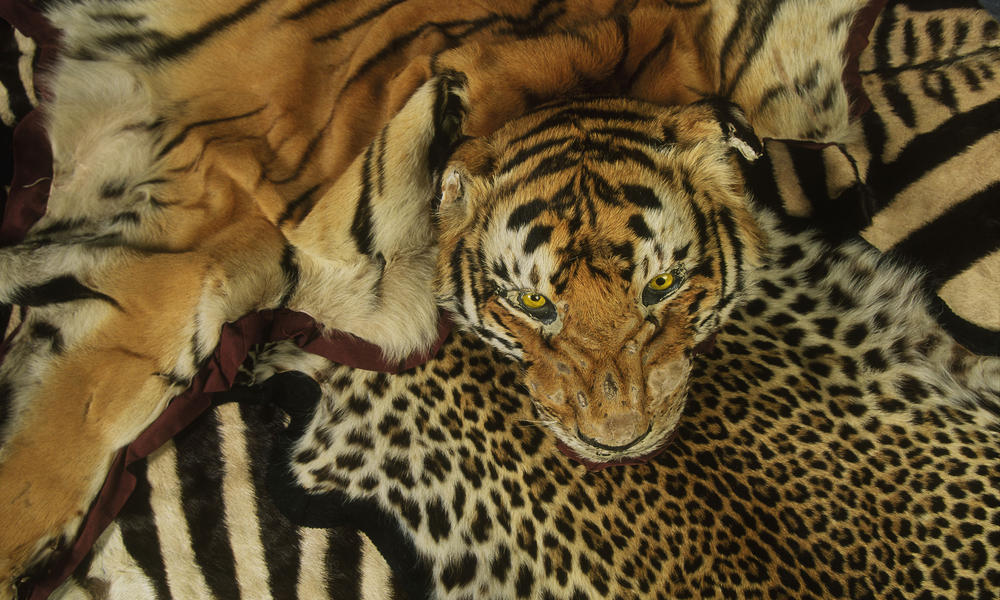Growing Threat of Wildlife Trade
It is not uncommon to hear of intellectual s going to prison. Some were placed under detention for being fiery advocates of subversive ideas. Others, for constantly criticising the status quo, stay behind bars for their persuasive views.

A philosophy professor in Minnesota, United States hit the news last-week when forced to face federal indictment for an unusual crime among scholars. The US Fish and Wildlife Service agents arrested him for allegedly profiting from protected wildlife by smuggling elephant ivory and rhinoceros horns.
The illegal traffic in the body parts of endangered wildlife is a booming global industry. Valued as food, medicine, ornaments and pets, wildlife trade is now worth huge sums. Hence, if convicted, it need not be a surprise to anyone that a teacher of moral beliefs could also double as a wildlife trafficker.
According to an estimate by Interpol, the value of the illegal global wildlife trade ranges from US$7 billion (RM25.3 billion) to US$20 billion annually, not including illegal fisheries and timber. It ranks second only to illicit drug trade and is as dangerous as other transnational crimes such as counterfeiting and human trafficking.
In recent years, a kilogramme of rhinoceros horns could fetch US$65,000, surpassing the price of a kilogramme of gold and cocaine at US$40,000 and US$26,000 respectively. This explains why rhino poaching in South Africa alone reached more than 1,200 last year, a staggering increase in just a decade.
As a result, the thriving black market and international wildlife poaching network is decimating iconic species in Africa and Asia, pushing them to the brink of extinction. Authorities believe that organised criminals, armed rebel groups and even terrorist organisations are cashing in on the trade.
To deter poachers and traders, dealing in protected species was made a criminal offence in many countries with stiffer penalties than before. However, law enforcement has yet to be an urgent priority. In ·2013, an Irish court fined two traffickers a mere US$676 for a major violation of trafficking rhino horn worth US$676,600. Similarly, in other countries, very few guilty poachers and traders ever do a day in prison. The irony is that, prohibitions on trading wildlife products have ultimately made them more valuable.

Malaysia stands at the epicentre of the international network of illicit trade. It is identified as a transit point for ivory smuggling before it reaches Hong Kong, Japan, Vietnam, Thailand and China. One if its citizens was once infamously considered a key trader of reptiles in the global supply chain. He was eventually imprisoned in the US before doing his time in a Malaysian jail. Last month, the Department of Wildlife and National Parks (Perhilitan) in its Operasi Taring arrested seven young Malaysians, aged 19 to 30, for advertising wildlife products on social media.
Our own big three mammals are also under threat. The poaching pressures on tigers, elephants and rhinos have shown no sign of waning. Tigers, a keystone species and apex predator in Malaysia, are seriously threatened by not just habitat loss but also depletion of its main prey, the Sam bar deer. Its population, which was estimated to be 5,000 in the 1950s, has now dwindled to an estimate of between 250 and 340. Again, profit is the main driver. A live tiger is worth US$50,000 in the black market while its skin alone is valued up to US$35,000.
But the wildlife markets are multi-product and multi-species. To focus on dismantling just a single market for rhino horn or tiger skin in isolation may miss the bigger war. Poachers and traders diversify their species as consumers differentiate among the options available. Worse, wildlife trafficking now intertwines with other illicit activities that undermine security and the rule of law.
Against this grim backdrop, a regional strategy may go a long way to curb the illegal trade and transit of wildlife in Malaysia. Beginning March 30 in Tuaran, Sabah, MalaySia and the US co-hosted a three-day Asean Regional Forum (ARF) Workshop on Combating· Wildlife Trafficking. The workshop builds on from existing cooperation such as Asean Wildlife Enforcement Network and Asean Wildlife Forensics Network. These will set the stage for Asean member states to share intelligence-based information in combating illegal trade in the region.
But there is a limit to the efficacy of law enforcement. Until and unless steps are taken to reduce demand and supply at all levels, efforts at wildlife conservation in Malaysia and beyond will not succeed. As lame as it may sound, buyers still hold the key to a lasting solution. One step in the right direction is when a major consumer, China, suspended imports of ivory carvings for one year since February. Time will tell if a domino effect of ethical buying is forthcoming.
Article by Dr Hezri Adnan which appeared in New Straits Times, 7 April 2015.

Related Posts
By : Ameerul Ahmad
Medical Uni in Malaysia: Opportunities for International Students
The prospect of studying medicine in Malaysia offers a unique…
By : Ameerul Ahmad
Where to Get Miniature 3D Printing File for Tabletop Gaming Figures
In the world of tabletop gaming, custom miniatures can bring…